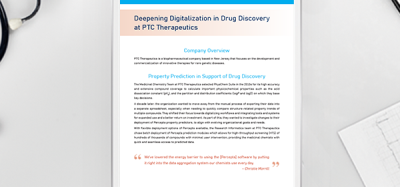Semaglutide may help people with obesity lose weight
Posted: 20 March 2018 | Dr Zara Kassam (European Pharmaceutical Review) | 1 comment
A compound that mimics a naturally occurring hormone that regulates appetite may help people who have obesity but not diabetes to lose weight…


A compound that mimics a naturally occurring hormone that regulates appetite may help people who have obesity but not diabetes to lose weight, a new study suggests.
The compound, semaglutide, has a chemical structure that is very similar to the hormone glucagon-like peptide 1 (GLP-1), which regulates both insulin secretion and appetite. In December, the US Food and Drug Administration approved the semaglutide injection Ozempic as a once-weekly adjunct to diet and exercise to improve glycemic control in adults with type 2 diabetes.
“This randomised study of weight loss induced with semaglutide in people with obesity but without diabetes has shown the highest weight reductions yet seen for any pharmaceutical intervention,” said lead author Dr Patrick M. O’Neil, Director of the Weight Management Center and Professor of Psychiatry and Behavioral Sciences at the Medical University of South Carolina in Charleston, S.C.
The new study included 957 participants, 35 percent of whom were male. All participants had a body mass index (BMI) of at least 30 but did not have diabetes. They were randomly assigned to seven different groups. Five groups received different doses of semaglutide (between 0.05 mg and 0.4 mg) via injection once daily; a sixth group received a placebo, and a seventh group received 3 mg of the diabetes drug Saxenda. All participants received monthly diet and exercise counselling.
After one year, all participants receiving semaglutide had lost significantly more weight than those receiving placebo. The higher the dose participants received, the greater their average weight loss. Participants who received 0.05 mg of semaglutide daily lost an average of 6.0 percent of their body weight; the 0.1 mg group lost an average of 8.6 percent; the 0.3 mg group lost an average of 11.2 percent; and those receiving a daily dose of 0.4 mg lost an average of 13.8 percent. Those receiving liraglutide lost an average of 7.8 percent of their body weight, while those in the placebo group lost only 2.3 percent on average.
Sixty-five percent of participants who received 0.4 mg of semaglutide per day lost at least 10 percent of their body weight, compared with 10 percent of those in the placebo group and 34 percent of the liraglutide group.
The most common adverse events in those taking semaglutide were mild/moderate nausea, as seen previously with GLP-1 receptor agonists.
Dr O’Neil noted that further studies of semaglutide for obesity are underway.
The research was presented at ENDO 2018, the Endocrine Society’s 100th annual meeting in Chicago, Ill.










What exactly are the risks for thyroid cancer with this drug? It it mostly dose dependent? Is it related to long term use of the drug? Would hypothyroidism increase this risk?
Is it true (as my physician repeatedly explained) that the volume of the stomach decreases by up to 50% with use of semaglutide and that strict adherence to small bites, slow mastication/eating, and other actions required by gastric bypass/sleeve patients is required?I did not see this explanation in the drug description handout accompanying the kit, but I saw the video that goes with the new patient introduction to its use.
Thank you!